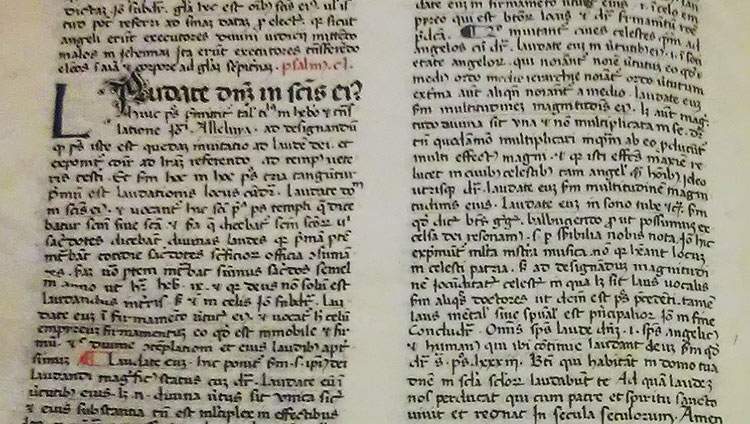We receive and publish from Cristina Agüero, a Spanish researcher with a degree in art history, an open letter denouncing the conditions in which scholars are forced to work at the State Archives of Palermo. Readers will recall how Finestre Sull’Arte has always paid special attention to the debate on the free reproduction of images of archival documents, finally sanctioned by a law (the 124/2017) that came into force last August 29. It seems, therefore, that in Palermo the law is not being applied, so much so that aparliamentary question has been submitted to ask the Minister of Cultural Heritage to shed light on the matter. We hope that the situation can be resolved as soon as possible: in the meantime, we give voice to Dr. Agüero so that attention will grow around this issue. The letter begins after the image.
 |
| Ph. credit Finestre Sull’Arte |
On August 29, a law came into force in Italy, No. 124/2017, for the reproduction by one’s own means, free of charge and exempt from prior authorization, of documentary sources preserved in state archives and libraries. A very advanced law, which has allowed Italy to align itself with other European countries where this right has been recognized for years. It finally comes to the aid of scholars and researchers, whose activities contribute to the knowledge, preservation and enhancement of our memory. In particular, free reproduction points to the saving of money, but above all of another fundamental resource for every scholar, that of time.
The law was a small victory for all those archivists and librarians who consider as their mission the preservation of sources, but above all an even more noble activity, that of making accessible the funds they guard to facilitate research by transforming archives and libraries into truly living places. It must be stressed that archival and bibliographic heritage belongs not only to scholars but to all citizens. A heritage that still has a lot to tell each of us, as individuals and as a community: in notarial or municipal archives I have often found people coming to know more about the history of their ancestors or their home, either for legitimate legal reasons or out of genuine curiosity.
The law has appealed little to those who still think that they live in the midst of the Old Regime and are the masters of the castles and coffers hidden there, without considering that they are nothing more than custodians called upon to offer a service to the real owners of that heritage, namely the citizens. It is curious that we are suddenly reminded of conservation only to deny citizens a right acquired by law. One certainly does not have to be an expert in preservation to understand that in flipping through a record to photograph it from a distance, it suffers even less than the continuous manipulation that is required to transcribe its contents. It is equally evident that there are very delicate documents that must be excluded from normal consultation (or at least subjected to supervised consultation) in order to preserve their integrity, but to use the pretext of preservation to systematically prevent the reproduction by one’s own means of the fonds kept at the State Archives of Palermo, forcing researchers to use a useless and costly paid service, not only means trampling on a right recognized by law, but has the flavor of a real hoax against scholars. Users of the Palermo State Archives have already addressed an appeal to Minister Franceschini to ask that liberalization be made effective there as well, which we all hope will not fall on deaf ears.
Cristina Agüero. Graduate in Art History.
Warning: the translation into English of the original Italian article was created using automatic tools. We undertake to review all articles, but we do not guarantee the total absence of inaccuracies in the translation due to the program. You can find the original by clicking on the ITA button. If you find any mistake,please contact us.